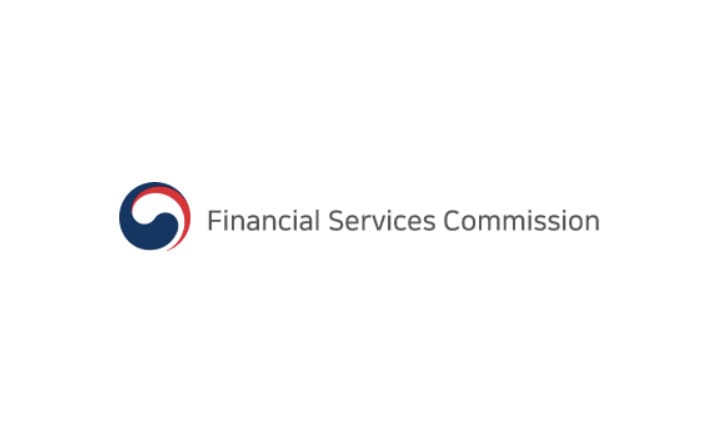CFTC Global Markets Advisory Committee Advances Recommendations

GMAC Global Market Structure Subcommittee Recommendations
The GMAC’s Global Market Structure Subcommittee (GMSS) prepared four recommendations:
- Appropriately calibrated block and cap sizes under CFTC Part 43 swap data reporting rules to enhance market liquidity and financial stability
- Addition of certain central counterparties (CCPs) as permitted counterparties under CFTC Rule 1.25(d) to promote the well-functioning of the repo market
- Expansion of cross-margining between the CME Group and the Fixed Income Clearing Corporation (FICC) to support greater efficiency in the U.S. Treasury markets
- Best practices for exchange volatility control mechanisms to address market stress and market dislocation during periods of high volatility
GMSS Recommendation 1 – New Block and Cap Sizes
Appropriately calibrated block and cap sizes are vital to the proper functioning of derivatives markets, including price discovery and transparency. However, the CFTC’s new post‐initial block and cap sizes that will require compliance starting July 1, 2024, may negatively affect market liquidity and could significantly raise trading and hedging costs for buy‐side market participants and end users such as pension and other retirement plans.
The GMAC recommends extending the compliance date for the post‐initial block and cap sizes for all asset classes to at least December 4, 2024. The GMAC further recommends that, during the extension period, the Commission engages with market participants in discussions and analysis to ensure the post‐initial block and cap sizes are appropriately tailored, including with respect to current market and macroeconomic conditions.
GMSS Recommendation 2 – Proposal to Add CCPs as Permitted Counterparties
Further alignment of SEC and CFTC regulations would support critical risk management functions that will promote well-functioning repo and funding markets. While CFTC rules impose customer protection requirements and permit a futures commission merchant (FCM) or derivatives clearing organization (DCO) to utilize repos to manage customer funds, an SEC-registered clearing agency is not a permitted counterparty under Rule 1.25(d)(2).
The GMAC recommends that the Commission allow a CCP that meets the definition of a “covered clearing agency” under SEC Rule 17-Ad-22(a)(5) to be designated a “permitted counterparty” pursuant to CFTC Rule 1.25(d)(2).
GMSS Recommendation 3 – FICC-CME Customer Position Cross-Margining Structure
For two decades, the CFTC and the Securities and Exchange Commission (SEC) have approved cross-margining for Treasury securities transactions and Treasury futures, promoting the efficiency and well-functioning of the U.S. Treasury markets—the backbone of the global financial system.
The GMAC recommends the Commission make the benefits of cross-margining available to a broader range of sophisticated customers, including those customers that will be subject to the new SEC Treasury clearing requirements, as well as to all customers that voluntarily elect to clear Treasury transactions and will post margin.
GMSS Recommendation 4 – Endorsement of Futures Industry Association (FIA) Volatility Controls Mechanism Paper
The efficient management of financial market volatility is paramount. During recent crises in markets, such as during the COVID-19 pandemic, as well as in commodity markets, the Futures Industry Association (FIA) has noted the pivotal role volatility control mechanisms have played in preserving market integrity. Consequently, FIA engaged with global derivatives exchanges and market participants to explore the most effective ways to mitigate disruptions while ensuring transparent price discovery.
The GMAC recommends the Commission use the best practices as a tool for understanding exchange market risk controls and when engaging with global regulators and international standard setters.
GMAC Technical Issues Subcommittee Recommendations
The GMAC’s Technical Issues Subcommittee (TIS) prepared four additional recommendations:
- Adoption of lessons learned from a global default simulation across CCPs to address systemic risk and promote financial stability
- Harmonization of the treatment of money market funds as eligible collateral to improve market liquidity
- Improvement of trade reporting for market oversight to ensure international standardization and global aggregation and analysis of data to address systemic risk
- Improvement of trade reporting for market oversight to facilitate data sharing across jurisdictions for systemic risk analysis
TISS Recommendation 1 - Global Default Simulation
In November 2023, CCP Global conducted a global default simulation across CCPs. Global regulator support of the exercise was critical to its success. The default simulation was arranged in consultation and with input from regulators. It is critical the CFTC continue its support and valuable input, alongside its role in convening regulators and market participants.
The GMAC recommends the CFTC consider inclusion of lessons learned and best practices arising from such simulations into its capacity building programs with, especially, some emerging market regulatory homologues.
TIS Recommendation 2 – MMFs as Eligible Collateral
The CFTC’s proposed rule amendment to remove the asset transfer restriction from money market funds (MMFs) used as eligible collateral for non‐cleared margin will harmonize the parameters for MMF use with the UK and resolve one of the impediments to the use of MMFs between the U.S. and EU. The proposed rule will also allow the CFTC to self‐align MMFs with its eligible collateral requirements for cleared margin, per CFTC Rule 1.25, which governs the investment of customer money by FCMs without similar asset transfer restrictions.
The GMAC recommends the Commission: (i) finalize the proposed rule amendment; (ii) encourage the U.S. Prudential Regulators to adopt a corresponding amendment to their non‐cleared margin rules, including allowing third country funds; and (iii) encourage EU policy makers to remove the third country fund restriction for eligible collateral from their non‐cleared margin rules.
TIS Recommendation 3 – Improve Trade Reporting for Market Oversight, Streamline Potential 40% Increase in CFTC Reportable Data Elements
The Commission is currently amending its Part 43 and Part 45 swap data reporting requirements to potentially add nearly 50 additional reportable fields on top of the currently required 128 data elements that were just implemented in December 2022. The potential 40% increase in data reporting elements distracts from optimizing analysis and use of the recently expanded data set and creates further obstacles and uncertainty for meaningful global aggregation and analysis of trade repository data. Further, an ad hoc approach to additional data reporting elements unnecessarily increases costs.
The GMAC recommends several steps to improve data reporting elements which will (i) advance analytical tools to optimize use of the current, recently expanded, data set; and (ii) focus on impediments to data sharing, including the alignment of the validations and requirements for critical data elements (CDE) fields and global identifiers.
TIS Recommendation 4 – Improve Trade Reporting for Market Oversight and Improving Data Sharing and Systemic Risk Analysis
Regulators, including the CFTC, have implemented global trade reporting harmonization efforts to enable data amalgamation to facilitate regulatory data usage across jurisdictions. However, there are non‐data related impediments that could prevent data sharing, thus undermining the value of these significant projects.
The GMAC recommends the Commission facilitate discussions with key regulators (market and prudential) on the desire to share data elements and agree upon the Memoranda of Understanding (MOU) needed to allow such activity, starting with U.S. and then prioritize other G20 regulators where there is significant overlap.
About the GMAC and Advisory Committees
The GMAC was created to advise the Commission on issues that affect the integrity and competitiveness of U.S. markets and U.S. firms engaged in global business, including the regulatory challenges of a global marketplace that reflects the increasing interconnectedness of markets and the multinational nature of business. The GMAC also makes recommendations regarding international standards for regulating futures, swaps, options, and derivatives markets, as well as intermediaries. Members include financial market infrastructures, market participants, end-users, service providers, and regulators. Harry Jung is the GMAC Designated Federal Officer, and Nicholas Elliot is the GMAC Alternate Designated Federal Officer.
In May 2023, Commissioner Pham outlined a number of priorities for the GMAC and its Subcommittees. In June 2023, Commissioner Pham announced the leadership and membership of the GMAC and its subcommittees—the largest-ever single advisory committee initiative sponsored by the CFTC.
There are five active Advisory Committees overseen by the CFTC. They were created to provide advice and recommendations to the Commission on a variety of regulatory and market issues that affect the integrity and competitiveness of U.S. markets. These committees facilitate communication between the Commission and market participants, other regulators, and academics. The views, opinions, and information expressed by the Advisory Committees are solely those of the respective Advisory Committee and do not necessarily reflect the views of the Commission, its staff, or the U.S. government.

TLDRS
- CFTC Global Markets Advisory Committee Advances Recommendations.
- The CFTC's new post-initial block and cap sizes set to take effect on July 1, 2024, are crucial for derivatives markets' functionality but may adversely impact market liquidity and increase trading and hedging costs for buy-side participants, including pension and retirement plans.
- The GMAC suggests postponing the compliance deadline for these sizes across all asset classes to December 4, 2024, and recommends the Commission to use the extended period for engaging with market participants to adjust the sizes considering current market and macroeconomic conditions.
- Aligning SEC and CFTC regulations would enhance risk management in repo and funding markets by addressing discrepancies; specifically, while CFTC rules allow the use of repos by FCMs or DCOs for managing customer funds, SEC-registered clearing agencies are not recognized as permitted counterparties under current rules.
- The GMAC suggests the CFTC amend its rules to include CCPs that qualify as “covered clearing agencies” under SEC Rule 17-Ad-22(a)(5) as “permitted counterparties” for the purposes of CFTC Rule 1.25(d)(2), facilitating better integration between the agencies' regulatory frameworks.
- Over the past twenty years, the CFTC and SEC have facilitated the efficiency of the U.S. Treasury markets by approving cross-margining arrangements for Treasury securities transactions and Treasury futures.
- The GMAC advises the Commission to extend the advantages of cross-margining to a wider array of sophisticated customers, including those affected by new SEC Treasury clearing mandates and any customers choosing to clear Treasury transactions and post margin voluntarily.
- The Futures Industry Association (FIA) highlighted the crucial role of volatility control mechanisms in maintaining market integrity during crises, including pandemic, and worked with global derivatives exchanges and market participants to identify optimal disruption mitigation strategies.
- The GMAC advises the Commission to employ best practices derived from this engagement as a guide for comprehending exchange market risk controls and in discussions with global regulators and international standards organizations.
- The GMAC’s Technical Issues Subcommittee (TIS) prepared four additional recommendations:
- In November 2023, CCP Global carried out a worldwide default simulation across central counterparties (CCPs), with the exercise's success significantly bolstered by global regulatory support and collaboration.
- The GMAC suggests that the CFTC incorporate insights and best practices from these simulations into its capacity-building efforts, particularly when working with regulatory counterparts in emerging markets.
- The CFTC's proposal to lift the asset transfer restriction on money market funds (MMFs) for non-cleared margin aims to align U.S. practices with those of the UK, facilitating MMF use between the U.S. and EU, and to match its own rules for cleared margins, enhancing the usability of MMFs as collateral.
- The GMAC urges the CFTC to finalize this amendment and to promote similar regulatory adjustments among U.S. Prudential Regulators and EU policymakers, including the acceptance of third country funds, to standardize the treatment of MMFs across jurisdictions.
- The Commission's ongoing revisions to its Part 43 and Part 45 swap data reporting requirements could introduce about 50 new reportable fields to the already required 128, potentially complicating the analysis and utilization of the newly expanded data set and hindering global data aggregation and analysis due to 'added complexity and uncertainty'.
- The GMAC proposes enhancements to data reporting that include developing analytical tools for better utilization of the existing, expanded data set and addressing barriers to data sharing by harmonizing validations and requirements for critical data elements (CDE) and global identifiers, aiming to streamline and improve the efficiency of data reporting and analysis.
- Despite efforts by regulators like the CFTC to harmonize global trade reporting for easier data amalgamation across jurisdictions, non-data-related barriers may still hinder data sharing, potentially diminishing the impact of these harmonization initiatives.
- The GMAC advises the Commission to initiate dialogues with essential regulators (both market and prudential) to foster a willingness to share data elements and to establish the necessary Memoranda of Understanding (MOU) to facilitate such exchanges, beginning with the U.S. and then focusing on G20 regulators with significant regulatory overlap.



